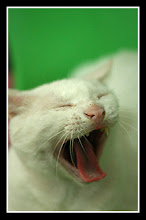We were in Iloilo shopping for a nice book for my goddaughter when I came across Stephen King's 2009 novel Under the Dome. It was a brick of a book, around 4 inches thick. I've always been fascinated by King's take on the paranormal, so I got me a copy 'to read during the flight back to Manila,' I told Arnel.
Took me a week to read it, but not because of its length. Let's just say King is no Stephenie Meyer, whose Twilight series he dissed some years back. Meyer, at least, is a sensitive storyteller, and she managed to retell an old love story in a way that captivated the world. As for this King novel, well, I could have put it aside and forgotten about it, if it were not so huge and heavy.
As with most of his stories, this one was full of interesting characters. But they were mostly either bad or good, with the bad ones really badass, and the good ones almost losers (in fact, some of the good ones made decisions that were so stupid they were unbelievable). The buildup was crawling, and the plot was riddled with a lot of coincidences that influenced how the story went.
I've never been a fan of stories built on coincidences--I think it's a cop-out on the part of the storyteller--but sometimes they can work if they were subtly worked into the plot. But that's not the case here. Coincidences are so common, and they all seemed to work for the bad guy's advantage you would think the universe was in his payroll.
But the thing I can't forgive was the weak ending--it just didn't justify reading through four inches of pulp. I got the ants-under-the-magnifying-glass theme, and the part where (spoiler alert!) one of the main characters tried to convince the alien (who happened to be alone at that moment--its companions having gone out for a snack or something) that humans were thinking beings, their petty lives notwithstanding. It seems the protagonist used a traumatic memory from her childhood to convince the alien that she had feelings, too (remember the 'dogs are people, too' buttons of the 80s?).
All throughout the buildup I got the impression it was another commentary on human behavior in isolation. That disappointed me somewhat--after all I didn't pick a Stephen King book to get Lord of the Flies. I was relieved when I reached the part where the kids had visions right before they had seizures. I thought, wow, we're finally getting some paranormal involvement.
But lo and behold, the prophetic visions were not adequately explained by the ants-under-the-magnifying-glass framework. It was like King ran out of space and didn't bother to stitch up this loose end. Did the aliens know how the show would end--perhaps because they controlled it--and had somehow planted the visions on people? What purpose did the visions serve, apart from holding the attention of readers looking for paranormal involvement?
I intended to surf around for explanations, but that would only waste more of my time. I hope fans of this book who read this blog would be kind enough to enlighten me. I'm waiting.
Subscribe to:
Post Comments (Atom)

No comments:
Post a Comment